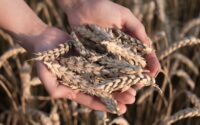
Praying And Making Dua During The Month Of Ramadan

If you do not know how to correctly read the Quran in Arabic, then join Quran Reading Academy for online Quran teaching classes to improve your Quran recitation and understanding skills.
Ramadan is one of the Holiest months of the Islamic calendar. It is the month in which Muslims make special preparations and indulge in excessive worship and praise of Allah Almighty. Besides keeping fast, the other objective of Muslim in this month is to gain as much blessings and reward from Allah Almighty as possible.
Pertaining to the month of Ramadan, the major emphasis of Muslims is on prayers of different kinds and making supplications in the court of Allah Almighty for greater blessings and mercy. Thus, Ramadan is not fasting only, rather it is also an increase in the prayers and Duas as well. The lines below discuss the different prayers and Duas that Muslims already undertake during Ramadan and their observance should be ensured.
Prayers:
Pertinent to prayers, there are three major types of prayers, which Muslims undertake during the whole month to ensure that the true spirit of fast is kept and worshiping of Allah Almighty increases. The lines below briefly discuss the three major types of prayers that Muslims undertake during the month of Ramadan.
Mandatory Prayers – It goes without saying that the first type of prayers that Muslims observe with religious spirit and zest throughout the month of Ramadan is the mandatory prayers. For a Muslim, saying prayer five times a day is mandatory, therefore, Ramadan or no Ramadan a Muslim is supposed to offer five prayers a day at their given time in accurate way. However, during the month of Ramadan the joy and serenity that a person receives increases because of the Holiness of the month and the same goes for the reward against each prayer as well. Therefore, a Muslim must make sure that all the mandatory prayers are offered on their regular time.
Traweeh – The other special prayer that Muslims observe during the month of Ramadan is Taraweeh prayer. This is the additional prayer, which Muslims offer specially in the month of Ramadan. Abu Hurairah (RA) reports the saying of Prophet Muhammad (PBUH) regarding Traweeh in the following way, where Prophet (PBUH) said:
“Whoever prays during the nights of Ramadan (Taraweeh) with a firm belief and hoping for reward, all of his previous sins would be forgiven.” (Bukhari)
This hadith of Prophet Muhammad (PBUH) is justification enough to emphasize on the importance of Taraweeh in Ramadan. Besides being a prayer that brings additional reward to a Muslim, it is also a means of seeking forgiveness for the previous sins.
Hazrat Aisha (RA) narrates
“The Prophet (PBUH) offered Salah in the mosque and many people prayed with Him. The next day He did the same and more people prayed with Him. The the people gathered on the third night but, the Prophet (PBUH) did not come out to them. In the morning, He said to them: ‘Surely I saw what you did, and nothing prevented Me from coming out to you, save that I feared that (that prayer) would be made obligatory upon you.’ And that was during Ramadan.” (Tirmidhi)
Therefore, the aforementioned two hadiths of Prophet Muhammad (PBUH) clearly state the importance and significance of Taraweeh. This is the reason why Muslims all across the globe ensure Taraweeh Salah after Isha prayer throughout the whole month, so every Muslim must also try observing Taraweeh prayer during Ramadan. To enjoy this special ibadat at night after fasting, you can read through the special Taraweeh Tips that will help you to know how to enjoy your Salat e Taraweeh.
Nawafil – The third type of prayer which Muslims can perform during the month of Ramadan are the Nawafil. These are the additional prayers which a person can offer at any time of the day and with any prayer or separately. Therefore, in addition to regular prayers and Taraweeh in Ramadan, a Muslim must also make time for Nawafil as well and offer them whenever time is available.
Duas For Ramadan:
In addition to prayers, Duas are another way with the help of which Muslims invoke Allah Almighty and ask for His blessings and mercy. Further to the general Duas, which Muslims make every day, Ramadan is an occasion when Muslims supplicate excessively. The different types and kinds of Duas that Muslims must make in the month of Ramadan are as follows.
Ashra Duas – The ten days of Ramadan are called ‘Ashra’, thus, Ramadan has three Ashras. For every respective Ashra there is a Dua which Muslims make every day during the fast, especially after the prayers. The Duas for the three respective Ashras are:
1st Ashra – Rab-bigh-fir war-ham wa Anta Khair-ur-Raahimeen. (Surah Al Muminun:118)
Translation – My Lord! Forgive and have mercy, for You are the Best of those who show mercy!
2nd Ashra – Astagfirullaha Rabbi Min Kulli Zambi Wa Atubu Ilaih
Translation – I ask forgiveness of my sins from Allah who is my Lord and I turn towards Him
3rd Ashra – Allahumma Ajirna min-an-naar
Translation – O Allah, protect us from the fire.
These three are the Ashra specific Duas which Muslims need to recite in the respective Ashras to seek forgiveness, blessings and protection from the fire of Hell. To have all these duas and other recommended duas for Ramadan, we recommend you to download The Ramadan Dua mobile application that will help you recite the important supplications while fasting.
Suhur And Iftar Duas – During the month of Ramadan, the predawn meal (Suhur) and the breaking of fast (Iftar) are the two meals and most blessed moments of the day. For these moments, there are special Duas that Muslims make.
At the time of Suhur when a Muslim is to eat the meal to begin fast, the following Dua must be recited:
“Wa bisawmi ghadinn nawaiytu min shahri Ramadan”
Translation: “I intend to keep the fast for tomorrow in the month of Ramadan” [abu Dawud]
The recitation of this Dua marks the beginning of the fast, therefore, after having the meal and when it is due time, a Muslim must recite this Dua.
At the time of Iftar, the following Dua must be recited:
“Allahumma inni laka sumtu wa bika aamantu [wa ‘alayka tawakkaltu] wa ‘ala rizq-ika aftarthu”
Translation: “O Allah! I fasted for You and I believe in You [and I put my trust in You] and I break my fast with Your sustenance [“wa ‘alayka tawakkaltu” is quoted in some books of knowledge – but not all, hence it is in brackets]” [abu Dawud]
This Dua expresses the gratitude of a Muslim that he or she puts in front of Allah Almighty with utmost humility and thanks Him for all that He has given.
Conclusion:
In a nutshell, for a Muslim Ramadan is the month in which they can gain maximum blessings and mercy from Allah Almighty and seek forgiveness for whatever sins they have committed. Therefore, prayers and Duas need to be ensured during the month as these are the two means that can help a Muslim achieve the desired objectives.





